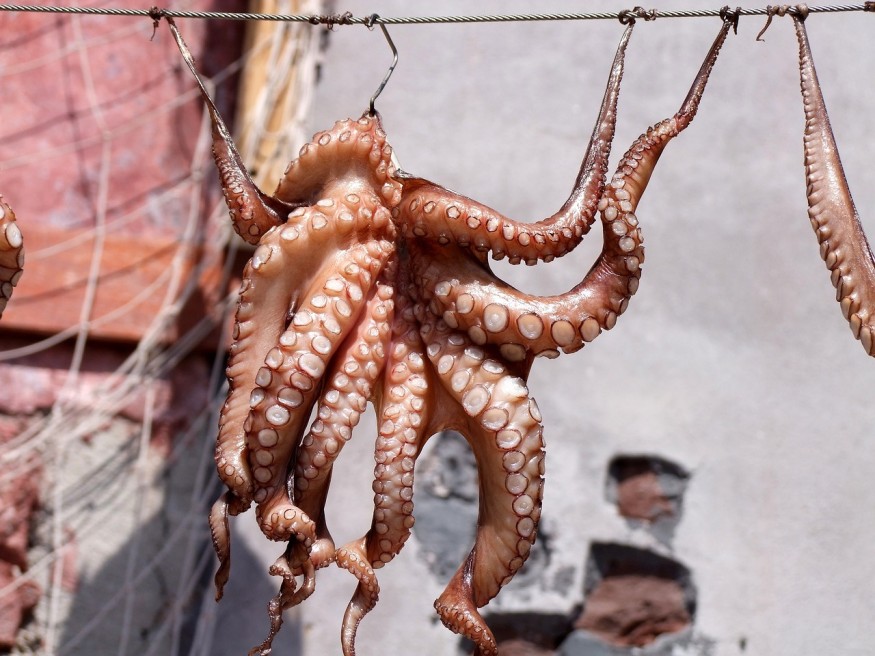Around 420,000 metric tons of octopus are captured globally each year as an ingredient for various dishes. The increasing global popularity of octopus has been linked to the increasingly diverse tastes of the younger population, as well as its nutritional benefits and the decrease in conventional fish stocks.
Due to that, octopus farming has been a growing topic as well. But it has also become controversial as experts believe that some of its practices are unnecessarily cruel.

World's First Octopus Farm Continues to Stir Debate
Food Navigation reports that welfare groups like Compassion in Farming and Eurogroup for Animals expressed their deep concerns for the food processing corporation, Nueva Pescanova, which aims to build the world's first indoor octopus farm in Gran Canaria. It will be a thousand-tank facility that will produce approximately 3,000 tons of octopus a year.
The two groups are calling out for the farm to be scrapped after learning of its plans to develop the octopus farm, which is found to use animal cruelty and could cause environmental consequences.
Moreover, they are urging the European Union (EU) to use funds in supporting octopus farming developments. Eurogroup for Animals CEO Reineke Hameleers said that they want the EU to include a ban on octopus farming on octopus farming to avoid putting sentient beings into a living hell.
As Science Times previously reported, the plans submitted by Nueva Pescanova to the General Directorate of Fishing of the Government of the Canary Islands and uncovered by the Eurogroup for Animals have raised issues on its cruel slaughter method, confinement of octopuses in small barren tanks, and overexploitation practices of wild fish.
They have outlined their concerns in a new report, titled "Uncovering the Horrific Reality of Octopus Farming."
READ ALSO : How Smart Is an Octopus? Marine Mollusk Has the Largest Brain-to-Body Ratio Among Invertebrates
Speciesism: Sentient Species Trapped in Barren Tanks
Lindsay Hamilton, a professor of Animal Organization Studies at the University of York, discussed the downside of the planned first octopus farm in the world in an article in the Conversation.
She wrote that like with many aquatic creatures, the octopus' allure stems from its otherworldliness, with millennia of myth and legend surrounding these strange beings in fishermen's songs and stories.
Despite abundant scientific evidence of the complexity of their behavioral repertoires, mollusks are not typically regarded as adorable, and it is difficult to consider them companionable or pleasant.
She thinks that this is making octopus and other aquatic species, such as squid and crabs, more appealing to eat. Scientists call this speciesism, wherein some animals are seen as pets or valuable coworkers, while others are merely food in waiting. Hamilton pointed out that, perhaps, the trouble of relating to these sentient species is used as ethical justification to make eating them acceptable.
There are no clear solutions or compromises, as there are in other food and farming conflicts. Tensions between consumer expectations and the market's ability to provide them persist. With so many other protein options, it's doubtful that anyone needs to eat octopus at all.
Yet, food is also linked to cultural values, sociability, and notions of excellent taste. At the very least, research can better enlighten us on the consequences of what and how we eat.
RELATED ARTICLE: Octopus Farm Proposal Disapproved by Some Scientists Over Cruel Slaughtering Method
Check out more news and information on Octopus in Science Times.
© 2025 ScienceTimes.com All rights reserved. Do not reproduce without permission. The window to the world of Science Times.












